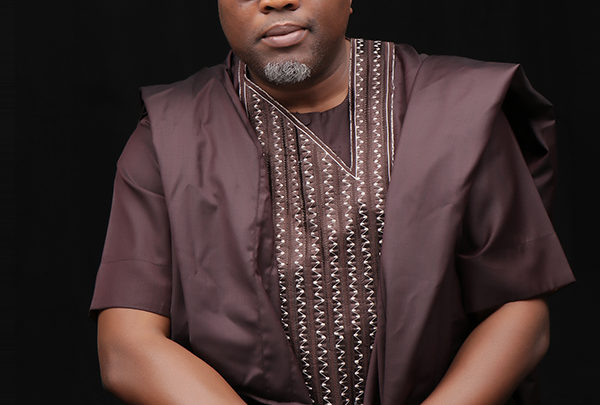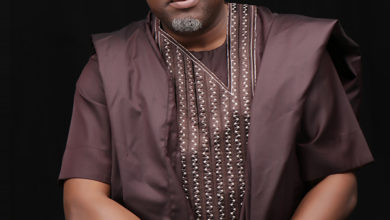
Well, I’m still on that quest to show that it’s not all doom and gloom in Nigeria. It could never be the case. For we are too blessed as a nation. I’ve had cause to research inequality of income in Africa of recent, with particular concern for Nigeria. This concern is borne out of the protest of Nigerians that statistical numbers don’t quite answer all questions. If the country posts high GDP growth numbers, it does not obliterate the complaints of ‘the man on the streets’. On one hand, we could examine the concerns of the average Nigerian and educate many to not repeat the stories of doom and gloom, or to take notice of when the tide turns – noting that standards of living will not improve for everyone at once. On the flip side, government must understand that the problem of inequality of income is a clear and valid concern, especially in today’s global capitalist milieu.
And as Nigeria continues to focus on ensuring relative income equality while also encouraging entrepreneurs who are willing, able and ready to create value, better their lots, and generate independent wealth, there is also a big concern around the tendency for some of our people to erode our little wins, to pooh-pooh the organic achievements of Nigeria over the years, and to paint a picture of hopelessness. The situation of Nigeria is certainly not hopeless. Indeed, Nigeria – in spite of our many challenges – has been on the up-and-up. One of the indexes which I hope to analyse in this article is that Nigeria is a moderate inequality country, with one of the very best Gini-coefficient (Gini Index when expressed as a percentage) or inequality measurement in the whole of Africa, and indeed the world. Nigeria’s Gini Index is 35.1% as at 2019. The lower the percentage the better. The lowest inequality countries in the world are kind of socialist countries, or social-democratic nations like the Scandinavians. Belgium posts 26.6%, Denmark 28.3%, Czech Republic 26.2%. For Finland, it is 27.7%, for Iceland 26.1%, for Croatia 28.9% for Slovenia it is 24.8%, for The Netherlands it is 28.5%, and for Sweden it is 29.8%. This is as good as it gets in the world today. These are verifiable World Bank and UN numbers as well.
This discussion is a very cogent, urgent and important one in Nigeria’s development journey. Sometimes it is important for a country to take stock. For me, despite what the statistics say – and some will dispute the numbers – I am triggered to take notice because I observe society around me with the eyes of a research economist and social psychologist. What I see is a society where people could be upwardly mobile, and where fortunes sometimes change in record time. We could do a lot better with repositioning our industries, producing our own essentials, having a more robust trajectory. Yes, we could. The low income inequality nations mentioned above are often very old nations who have experimented with different types of governance over time. Some of them have been criticized for choosing socialism or communism sometimes in their histories. A few are offsprings of the Union of Socialist Soviet Republic (USSR). Nigeria has never been socialist. We never had the opportunity to go that far (some accuse Awolowo of harboring socialist tendencies), having been granted independence in the very thick of the Cold War (Circa 1950 – 1989), when the Americans and Russians went on proxy wars for ideological reasons, and regimes were removed for same reasons. We were under the tutelage of the British though, and at 32.4%, the United Kingdom is also a relatively low equality nation and that could have influenced the trajectory of Nigeria.
Before I look into some reasons why Nigeria’s income inequality numbers are relatively low, let us extract some of the most unequal income nations of the world. South Africa is unfortunately the most unequal, with wealth heavily concentrated in the hands of a few. The number is 63% by World Bank figures, and 66.99% per the United Nations. It is unclear whether Black Empowerment has had salutary effect on income distribution and opportunities for the black majority since Nelson Mandela. Or perhaps just a few blacks have found new opportunities and also concentrated wealth to themselves. It needs to be studied what psychological barriers have held down the majority of the people over the decades and centuries.
Other high income inequality countries around the world – where the common man on the streets are truly neglected include Namibia (59%), Brazil (52%), Belize (53.2%), Zimbabwe (50.3%), Zambia (51.5%), Angola (51.3%), Botswana (53.3%), Colombia (54.8%), Mozambique (50.3%), and Eswatini (54.6%). Unfortunately, a number of the most unequal, oppressive countries are right here in Africa. Some of them suffer inequality because of their histories (South Africa, Botswana, Zimbabwe, Zambia and Namibia), while some are just class societies (like Eswatini, Angola, Equatorial Guinea, and Mozambique).
Any number above 50% is really a disaster zone. It must be noted that the US is borderline disaster zone, with 49% Gini Index as at 2023! Also China, despite its great achievements in poverty eradication posts a worse number compared to Nigeria, at 35.7% (World Bank) and 36.67% (UN). This raises a question about the correlation and causality between poverty and income inequality. India, another big economy with recent significant achievements in poverty eradication comes in at 32.8% (World Bank), and 37.06% (UN) as at 2021.
AFRICAN NATIONS AND THEIR INEQUALITY LEVELS
Angola – 51.3% (World Bank and United Nations)
Burundi – 37.5% (WB), 38.62% (UN)
Burkina Faso – 37.4% (WB), 43.02% (UN)
Botswana – 53.5% (WB/UN)
Central Africa R – 43% (WB), 43.5% (UN)
Cote D’Ivoire – 35.3% (WB), 37.17% (UN)
Cameroun – 42.2% (WB), 46.64% (UN)
Rep of Congo – 48.9% (WB), 48.94% (UN)
DR Congo – 44.7% (WB)
Cabo Verde – 42.4% (WB/UN)
Djibouti – 41.6% (WB/UN)
Algeria – 27.6% (WB/UN)
Egypt – 31.9% (WB/UN)
Ethiopia – 35% (WB/UN)
Gabon – 38% (WB/UN)
Ghana – 43.5% (WB/UN)
Guinea – 29.6% (WB/UN)
Equatorial Guinea – 50.2% (UN)
Kenya – 38.7% (WB/UN)
Lesotho – 44.9% (WB/UN)
Morocco – 39.5% (WB/UN)
Madagascar – 42.6% (WB/UN)
Mali – 35.7% (WB/UN)
Mozambique – 50.3% (WB), 50.45% (UN)
Malawi – 38.5% (WB/UN)
Niger Rep – 32.9% (WB), 37.26% (UN)
Nigeria – 35.1% (WB/UN)
Rwanda – 43.7% (WB/UN)
Senegal – 36.2% (WB), 38.31% (UN)
Sierra Leone – 35.7% (WB/UN)
Sao Tome/Principe – 40.7% (WB/UN)
Eswatini – 54.6% (WB/UN)
Chad – 37.4% (WB/UN)
Togo – 37.9% (WB)
Tunisia – 33.7% (WB), 32.82% (UN)
Tanzania – 40.5% (WB/UN)
Uganda – 42.7% (WB/UN)
Southern Africa – 63% (WB), 66.99% (UN)
Zambia – 51.5% (WB), 44% (UN)
Zimbabwe – 50.3% (WB/UN)
- Data ranges from 2014 to 2022, but put together, is largely representative of current situation.
- It is evident from above that only a few African nations are better than Nigeria in terms of income inequality. Nigeria may not be a totally oppressive nation as put out by detractors. But our population (a great asset), could put us under immense pressure in the near term.
WHY IS NIGERIA BETTER?
It could be argued that Nigeria has not clearly gone after income inequality since its creation. We have instead gone after wealth creation, oftentimes in a haphazard way. Some of the times, we react to high levels of poverty by creating or going after short-term opportunities. Beyond palliatives and the occasional distribution of cash to the neediest, yes Nigeria would do well to create a solid foundation that can help improve equality of income over the decades to come.
Suggestions include a solid industrial base, more integration in the industrial sector meaning that we have to use our own resources within our country to build our industries, more emphasis on value-addition to raw materials before exporting, more beneficial participation in Global Value Chains by building different bilateral and multilateral trade relationships not only for crude materials, salutary achievements in the energy sector to make energy relatively cheap and very stable for households and industries, development of a solid public sector that serves society and industries, and of course a keen focus on this goal of reducing inequality over time. It is not a destination but a journey. And the current administration has locked in on a number of these objectives. It goes without saying that optimizing the use of technology and keying into Artificial Intelligence to target developmental needs apart from use in the corporate sector is something that we need to do immediately. It must also be argued that Nigeria – with her relatively larger GDP levels – has created more opportunities for a lot of her citizens if the Gini Index numbers are anything to go by. A 35.1% inequality in a potentially $400 Billion (post rebasing) economy is far better than a 30% Gini Index in a $15 Billion economy, right?
Still, it is great to consider some reasons why Nigeria is almost unique and why we have a relatively low Gini coefficient/ index (moderate inequality). Some of these stem from our innate strengths and weaknesses as a nation:
REAL SELF RULE.
Nigeria is one country in Africa that has been left to its own devices over the years. Unlike countries like Kenya, Zimbabwe, Zambia, and SA, Nigeria economy is really run by Nigerian people. You see, I was triggered to write this article when on a recent TV show the anchor asked me why Nigeria is not like East African countries where many foreigners are found on the streets. I responded by saying we should see the relative independence of Nigeria as a privilege. Nigeria is the biggest experiment in the world, of black people governing themselves. No one should expect her to be perfect as yet. But progress is being made. This means that despite globalization and the aggression of powerful nations and companies, most of the best opportunities in Nigeria has been, and will continue to go to Nigerians. It is perhaps the reason we have the richest Black man in the world being a citizen of our great country. This also means that young Nigerians should have hope.
NEVER-SAY-NEVER SPIRIT
Then there is the indomitable nature of Nigerians. This relative aggressiveness could be attributed to the fact that we did not see too much brutality in the hands of our colonizers even though we suffered greatly in the slavery days – most slaves were taken from our region into the Caribbeans and Americas. But unlike Kenya, Mozambique, South Africa, Angola, Namibia, and so on, we did not have to fight wars to gain independence and so we waltzed in with pride. We had articulate representatives who argued for independence in London’s Lancaster House and we claimed that victory for ourselves. So, the average Nigerian carries no grotesque vestige of colonial scars and oppression and believes he is at par with anyone in the world. He/she is also not afraid of acquiring wealth and enjoying what other people enjoy. Unfortunately, many Africans still feel timid around white people, Indians or the Chinese. Never in Nigeria!
NOT A CLASS SOCIETY
Yes, some of our constituent societies are class societies but that fact daily gets eroded with globalization and information dissemination in this information age. These are a receding segment of the Nigerian society. The fact that the average Nigerian is vocal and aware of goings on in the international community has been squeezing out classism in our country. That said, most of our larger constituent cultures are totally classless, with anybody being potentially able to become anything in their society and country. There is also the total ease with which people can relocate within the country, to anywhere to become whatever they wish to be. I have seen thousands of Nigerians who made good after they relocated to the other end of the country. The entrepreneurial ‘tribe’ of Nigeria, the Igbos show this every day, but this is no longer limited to them. Every Nigerian is now wise to the advantage of repositioning within their own country and even outside the country.
OPEN OPPORTUNITIES
Our economy is fairly more open than most. And because it is an organic one which we are building – warts and all – it has become unbridled. I discussed the fact that in most other African nations one will struggle to find their own indigenous food on a sunny afternoon. Not in Nigeria! We are reputed to be in-your-face, unapologetic about pushing our own stuff. And Nigeria is a land of open opportunities where people get transformed overnight, oftentimes legitimately. The can-do spirit of the average Nigerian helps us in taking on big opportunities and proving our mettle. We are the Americans of Africa, easily.
Check this out. Indeed, there is a reason why:
- The richest man in Africa and the richest black man in the world is a Nigerian
- There are many dollar billionaires from Nigeria – the Samad Rabius, Adenugas, Elumelus, Otedolas, and others who are fully coded.
- There are thousands of Naira billionaires and dollar millionaires of Nigerian origin who fly under the radar for tax purposes.
- Nigeria’s tax to GDP ratio is low despite Nigerians living a fairly higher standard of living than most African countries. Our people keep their wealth coded.
- Nigerian students have always been the 4th largest foreign student population in expensive UK, around the 7th largest in even more expensive US, and we toggle the 3rd position with Philippines in Canada. Those heavy school fees are at least initially funded from Nigeria’s resources.
- Nigerians are among top property owners in the UK and indeed anywhere they find themselves. We always aspire to own multiple properties for investments. There is an innate confidence that comes from real self-rulership back in Nigeria, warts and all.
- Nigerians are easily the most traveled people in Africa, with the largest diasporan numbers, and even in terms of sheer daily traffic of travel, leisure, and other types of travelers. This has to be backed up by certain levels of individual wealth. Again, it’s not all doom and gloom for Nigeria else our people will not be able to even extract all the air ticket fees, visa fees, hotel charges and everything it takes to travel back and forth, or migrate and settle abroad.
- Nigeria has the largest diaspora group in the world and many times they are doing incredibly well, remitting over $20 Billion home every year. This is a major asset to our nation, just as is our population at large. There is no major capital city in the world without a thriving Nigerian business even if it’s a Nigerian restaurant. We are now known as the cultural capital of the world, producing the world’s best music and engaging movies. The narrative about Nigeria is changing fast, away from a country of fraudsters and terrorists. Nothing lasts forever. Tides change even for the worst scenarios.
FORCE-FEEDING THE CYNICS
It looks like there is no empirical evidence one can show to convince the average Nigerian cynic who has been unable to see the forest for the trees though. Some are activists. Those ones I understand. Some of them have genuinely signed up to remain with the poor and advocate that which leaders in government may not take notice of. But of late, the key concern is about the usually savvy analyst who pushes a wrong narrative because that is what sells and brings them attention. Can you imagine that some people will be sad if per chance Nigeria does make solid progress in the comity of nations? My concern therefore is to show that in spite of all the drawbacks and the suboptimal performance of many sectors over the years, indeed progress has been made. And the role of every true Nigerian is to build on that progress, to share to the needy from what they have, to be part of the creation of a better society. Never to ruin Nigeria’s image, talk her down, or try to foist a sick vision of dystopia borne out of prejudice and jaundice. I hope we can put to rest the bitter discussion on income inequality and dull the edges of the anger of those who only see a bleak vision of our dear country.
Like the saying goes: LEAD, FOLLOW, OR GET OUT OF THE WAY!
NB – A word on my last article about cognitive bias and why we need to interrogate our conclusions about the Nigerian economy. My friend Dr Abdulrauf Aliyu wrote a rejoinder (I’m glad at such intellectual engagement, as that indeed is the essence of the writeup). However, Abdulrauf’s article contained some fallacies. Whereas my main concern was the claim by NESG’s Chief Economist that Nigeria lost N94 Trillion in value under two years as a result of the exit of some multinationals, I didn’t critique everything done by NESG. So, the writeup was not personal and I’m glad that NESG understands that. I believe the claim – including that all of 30% of NMSMEs in Nigeria simply closed down within two years is not backed by evidence and I sought to provide the evidence and logic to disprove that claim. I also engaged some of the sensational reporting by other news channels. I don’t claim to see the future. I can only add my little effort to see how we can sustain our little achievements and not watch them eroded by wild claims of cynics who only present the dark side of that same future should turn out positive for the country if we continue to strive and do the right thing. Positivism is an important variable in the achievement of socio-economic development for a nation. And I am definitely very open to intellectual discourse without in the least claiming to know it all.



